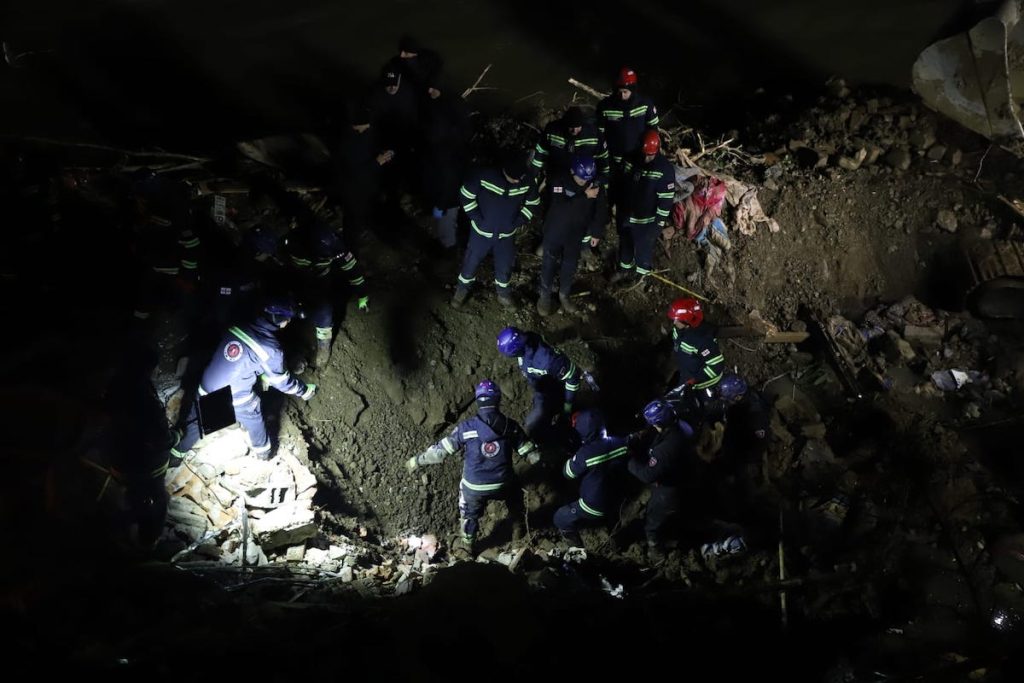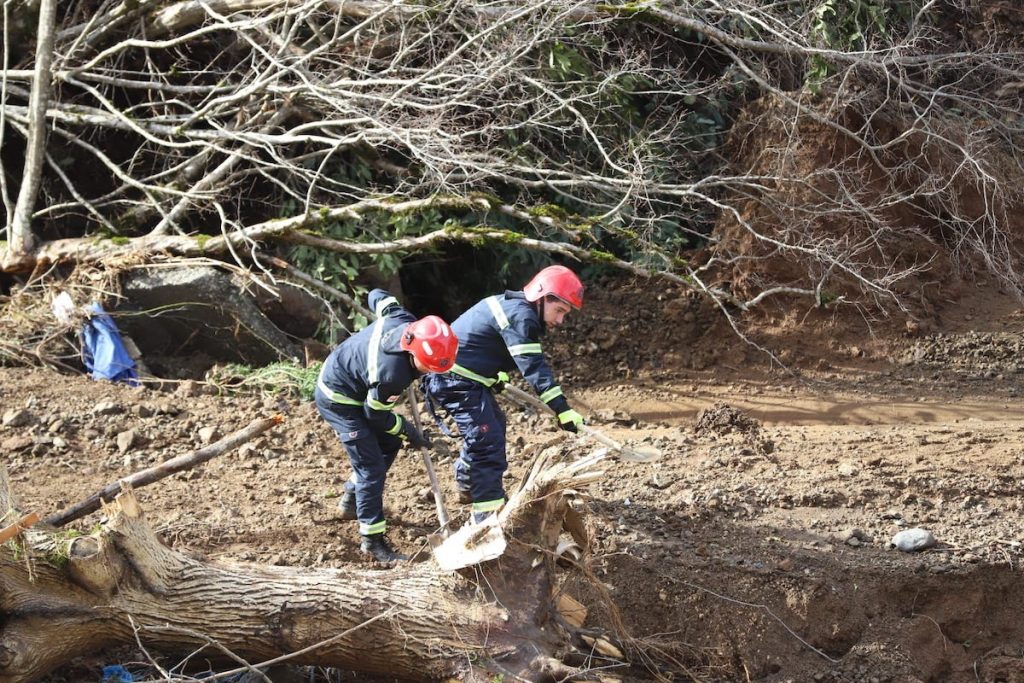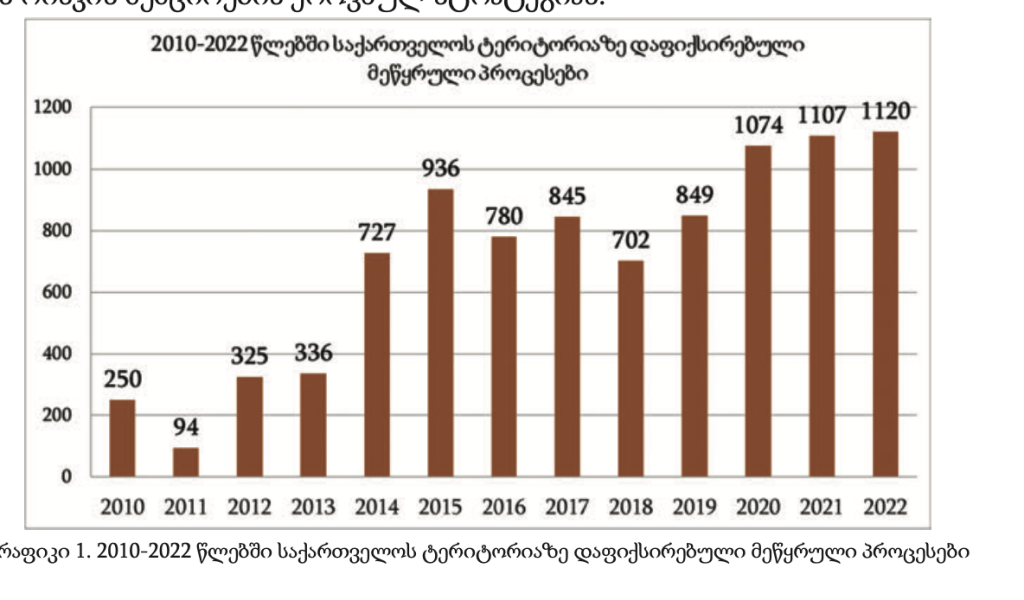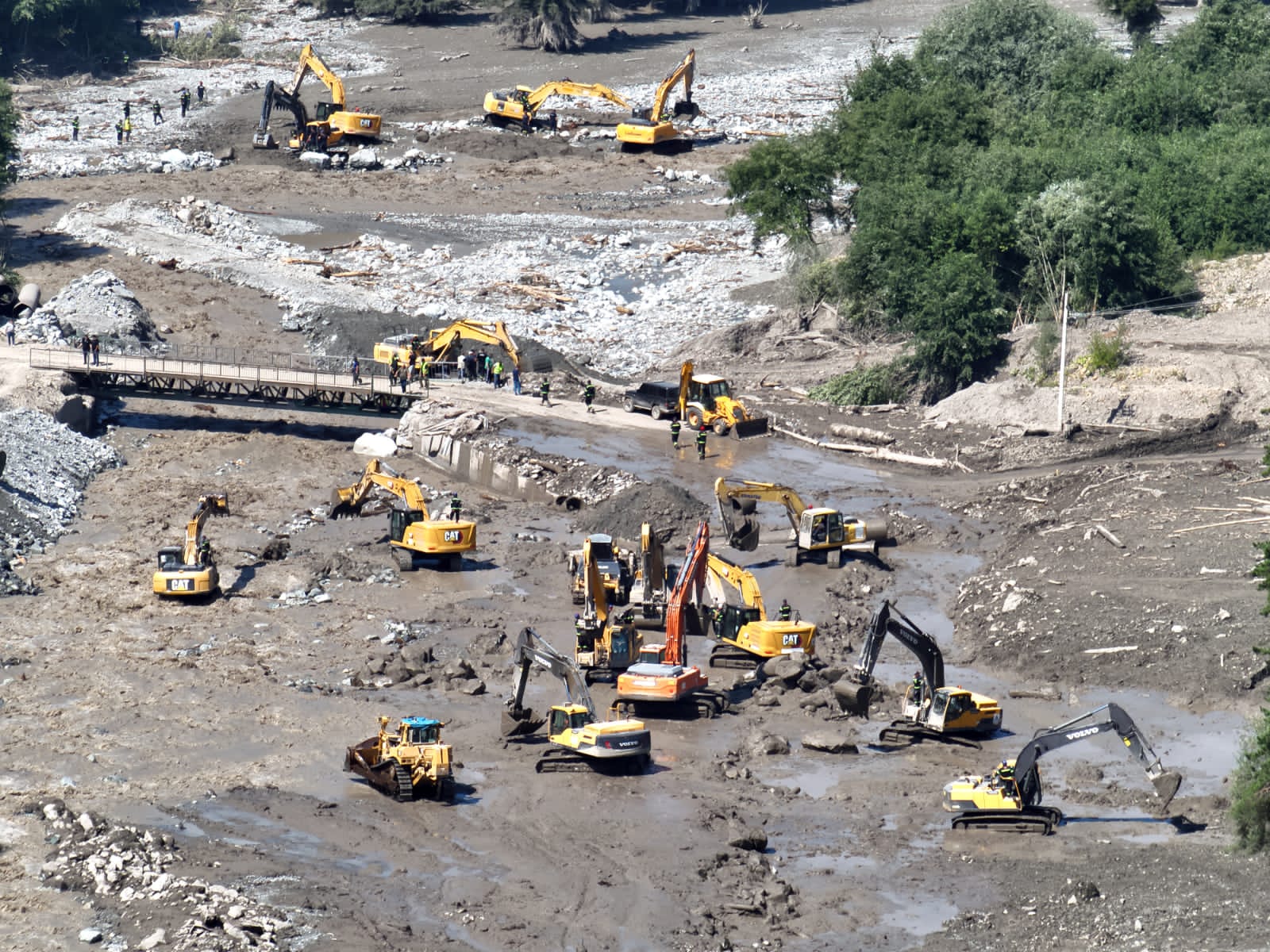Landslide in western Georgia claims 9 lives. Geologists had flagged Nergeti village as high-risk

At approximately 01:30 a.m. on February 7, a landslide struck the village of Nergeti in Baghdati municipality, Imereti region, destroying four residential homes.
Over 200 firefighters and rescue personnel from the Emergency Situations Service, aided by search dogs and specialized equipment, worked tirelessly throughout the day to locate individuals trapped in the landslide area. By day’s end, they had recovered the bodies of eight victims. Today, on February 8, the body of another victim was discovered. Among the casualties of the landslide are three minors.

In the wreckage of the kitchen in the village of Nergeti, rescuers discovered the bodies of three members of the Robakidze family: a mother, her daughter, and grandmother, as reported by Radio Liberty.
Among those present in the house, which now lies in complete ruin, was 20-year-old student Nia Robakidze, along with her parents and grandmother. Fortunately, the father survived as he was outside in the yard when the disaster struck, albeit sustaining a leg injury, for which he is currently receiving treatment in the hospital. He aided rescuers in identifying the likely whereabouts of his family members.
Additionally, the body of another victim, a middle-aged woman, was recovered from the bed of the Hanistskali River. The force of the landslide had propelled her home down the mountainside, ultimately into the river.
Tragically, rescuers also found the bodies of a man and his three young children: twin daughters in the 9th grade and a son in the 11th grade. The children’s mother, an immigrant, was also among the victims. According to rescuers, their home was completely engulfed by the landslide’s debris flows.
“I was asleep, but the rest of my family was awake. We all jumped up at the noise… But everything was already obscured by then. When the landslide hit, it was deafening. Then we heard banging on the roof of the house,” recounted a local resident during an interview with Radio Liberty, recalling the initial moments of the disaster.
“When we heard that sound, we thought it was an earthquake. When we looked outside, the 12-meter balcony of our house had been swept away. We couldn’t exit through the doors, so we had to climb out through the window, and then our neighbors helped us to safety. We had no idea that a landslide had descended from the mountain. We only found out later, after we had evacuated the house,” shared another resident of Nergeti, Natia Tavartkiladze, with “Batumelebi“.
Gia Soselia, also a resident of Nergeti, dialed 112 at 01:30 in the morning. He informed Radio Liberty that the landslide had destroyed the balcony of his house, with cracks appearing in the walls.
“For as long as I can remember, there’s been this crack [in the hill] for at least 30 years. Lately, it seems like the ground has sunk, and the crack has deepened. Perhaps water seeped in, the wind did its part, and everything started crumbling,” observed Gia Soselia.
What caused the landslide in Baghdati?
Landslides have emerged as a significant concern for villages across Georgia, posing life-threatening risks during adverse weather conditions. Despite specific geological studies conducted for many villages, tragedies remain unavoidable. While these studies identify hazardous residential areas, the situation often persists unchanged for years. Consequently, every bout of heavy rainfall poses a deadly threat to thousands of individuals.
Since February 5, weather conditions in Georgia have markedly worsened, particularly in Western Georgia, with heavy precipitation in the form of rain and snow, accompanied by strong winds. Additionally, a severe storm at sea has resulted in widespread flooding of houses.
On February 4, individuals received SMS messages from the number 112, warning of an expected sharp deterioration in weather and heavy precipitation across most regions of Georgia from February 5 to 8. The Rescue Service emphasized caution to the populace.
A day before the tragic events in Baghdati, on February 6, two fatalities occurred due to avalanches and landslides resulting from heavy snowfall and rain in the Hulo and Keda municipalities of the Achara region.
During the night of February 8, landslides also occurred in Surami, specifically in the Zindisi township. According to Mtawari Arch TV, ten families were evacuated.
The National Environmental Protection Agency released a statement regarding the landslide in Nergeti village, Baghdati municipality.
It has been observed that the occurrence and activation of the landslide in the right slope of the Khanistskali River valley, located in Nergeti village, Baghdati municipality, are attributed to the substantial precipitation received on February 5, 6, and 7.
“The meteorological stations in Kutaisi, Zestafoni, and Dimi recorded an atmospheric precipitation of 80-100 mm, which accounts for approximately 50-80 percent of the climatic norm for February,” stated the agency.
The agency further noted that the landslide measured about 30 meters in height, with a volume of approximately 150,000 m³ of landslide mass in motion.
The statement released by the National Environmental Protection Agency underscores the increasing frequency of landslide occurrences in Georgia in recent years, citing global climate change as the underlying cause:
“In light of climate change, regrettably, we are witnessing a rise in the frequency of natural phenomena both globally and within Georgia. Climate variations result in notably heavy precipitation, serving as a catalyst for associated natural calamities, including floods, landslides, and mudslides.”
Was the landslide anticipated?
Nergeti village, located within Baghdati municipality, has long been identified as a settlement susceptible to landslides.
The Department of Geology of the National Environmental Protection Agency compiled a bulletin encompassing the findings of natural geological processes in Georgia for 2022 and projections for 2023. This document foresaw the activation of landslide processes in Baghdati municipality, including Nergeti village, as well as landslide occurrences in Shovi.
However, this document is not accessible on the website of the National Environmental Protection Agency, nor is it available on any other official platform.
“Radio Liberty” has obtained access to the document and has observed that Nergeti village is also designated among the settlements within the anticipated natural disaster zone.
This village is delineated as a landslide-prone area in the geological bulletins for both 2022 and 2021, which are accessible online.
The documents identify seven villages in Baghdat district where landslide occurrences are expected: Obcha, Dimi, Tsiletkhevi, Persati, Nergeti, Shubani, and Zegani. Additionally, according to these documents, travel on the Baghdati-Zekari road, currently under construction, and the road along the valleys of the Khanistskali River and its tributaries is deemed unsafe due to the potential for rockfalls and bank erosion.
In Nergeti, a landslide directly struck houses situated along the bank of the Hanistskali River.
The content of the geological bulletins, spanning over 500 pages, remains virtually unchanged year after year.
The conclusion drawn by geologists asserts that “Georgia ranks among the most intricate mountainous regions globally in terms of the prevalence of natural geological processes, territorial damage, and risk of peril. Seventy percent of its territory and up to 60 percent of settlements lie within various hazard categories, with 20 percent categorized as high-risk.”
These documents highlight the escalating number of landslides in Georgia in recent years. In 2022 alone, the National Environmental Protection Agency recorded 1,120 landslide incidents, compared to 250 in 2010.




















